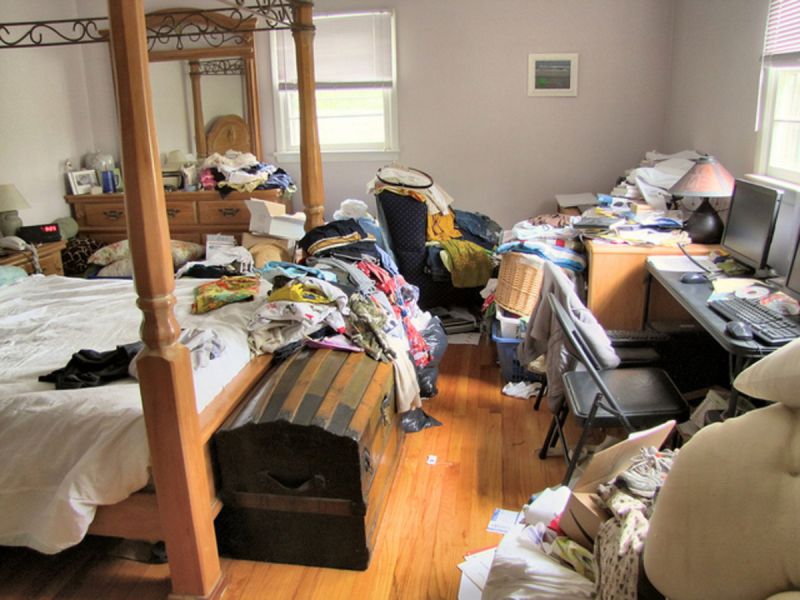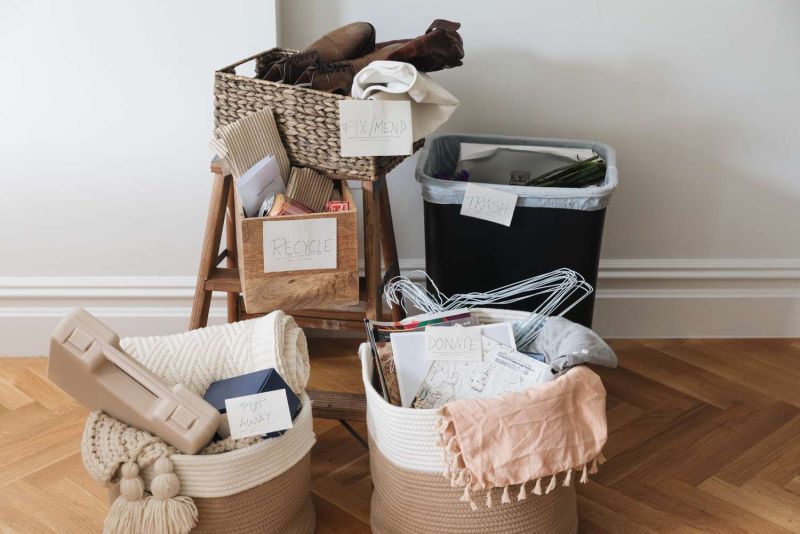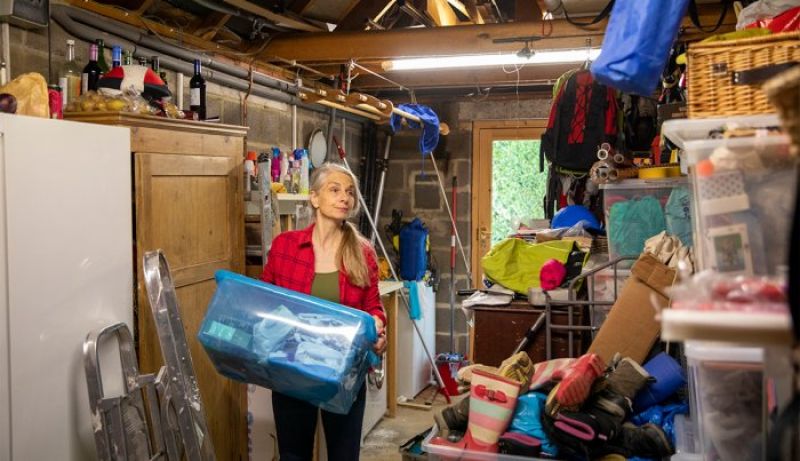Decluttering your environment may be a brilliant place to start if you're searching for a simple way to reduce stress. Learn how to do so in this article below.

According to Cambridge Dictionary, Decluttering is removing things you do not need from a place to make it more pleasant and useful.
Decluttering your environment may be a brilliant place to start if you're searching for a simple way to reduce stress. Removing unnecessary possessions can improve your mental health by making you feel calmer, happier, and more in control. In addition, a cleaner environment might lead to a more calm mentality.
Most people experience increased stress when their surroundings are disorganized. According to one study, for instance, women who described their homes positively had lower cortisol levels than women who told them as messy or unfinished.
Nonetheless, the case for decluttering is more complex. For example, another study discovered that while tidy surroundings are associated with healthier choices, chaotic environments foster creativity and new ideas. So if you value creativity, you might want to be slightly sloppy in certain aspects of your life.
Decluttering may boost productivity and enhance mental and physical health for most individuals.
Read Also:11 Tips For Building A Morning Routine That Sets You Up For Success
The Benefits of Decluttering

The benefits of decluttering include the following:
1. Improved concentration
Clutter makes finding what you're looking for tough. It may also cause you to become distracted. Getting rid of visual clutter might help you focus better on whatever activity you're working on.
2. Increased self-esteem
When you struggle to keep organized, you may feel out of control. Improving your living area might help you regain your sense of competence and dignity.
3. Improved connections
Conflict with family or housemates is expected when one cannot regulate clutter. You may also feel more at ease welcoming people into your house when it is neat.
4. Reduces the risk of asthma and allergies
You may believe your home is cluttered but not filthy. However, cleaning around piles of items takes a lot of work. Decluttering can help keep pests at bay and minimize dust, mold, and mildew, which can aggravate asthma and allergies.
5. Better lifestyle and well-being
A clean kitchen simplifies cooking healthy meals. In addition, most individuals sleep better in a clean room with a clean bed. Your life can be significantly improved by decluttering your home.
It creates a clean and organized living space and helps simplify your life by lowering stress and enhancing productivity.
How To Declutter Your Home

Read Also:11 Tips For Building A Morning Routine That Sets You Up For Success
If you're ready to declutter and simplify, here are some steps to get you started:
1. Set a Clear Goal
Begin by defining your decluttering goal. What do you want to achieve? Whether it's to create more space, reduce visual clutter, or have a more minimalist lifestyle, having a clear objective will help guide your actions.
2. Start Small
It can be stressful to attempt to handle your entire house at once. Instead, begin with one region within a room or perhaps one room itself. By doing so, you can concentrate your efforts and make forward progress that encourages you to keep going.
3. Categorize Your Belongings
Take inventory of your belongings and sort them into categories. Common categories include clothes, books, kitchen items, electronics, and sentimental items. This step helps you see the volume of items you own and makes decision-making easier later.
4. Declutter by Category
Once you have your categories, go through each and declutter item by item. Ask yourself whether each item is essential, useful, or brings you joy. If No, it's time to let it go. Consider giving, selling, or recycling goods that are still in good shape but no longer serve a role in your life.
5. Create a System
Establish organizational systems for the items you decide to keep. Invest in storage solutions like bins, baskets, and shelves to keep things in order. Label containers and designate specific spaces for different categories of items. This will help you save a clutter-free environment in the long run.
6. Be Mindful of Sentimental Items
Sentimental items can be the most challenging to declutter. Take time to assess their true significance in your life. Consider whether you can capture the memories associated with them in a different form, such as through photographs. Keep only the items that genuinely hold deep meaning for you.
7. Adopt a One-In, One-Out Rule
To prevent clutter from accumulating again, establish a one-in, one-out rule. This implies that you commit to eliminating one object from your home for every new item you bring in.
It helps maintain balance and prevents the re-emergence of clutter.
8. Practice Regular Maintenance
Decluttering is an ongoing process, not a one-time task. Make it a habit to reassess your belongings and declutter as needed regularly. Set aside time each month or season to evaluate your living space and make adjustments to keep it clutter-free.
9. Embrace Minimalism
Adopting minimalism goes hand in hand with simplifying your life. Let go of excess and concentrate on the essential things to you. Instead, aim to surround yourself with items that bring you joy, add value, or serve a specific purpose. Remember, less is often more.
10. Enjoy the Benefits
Once you've decluttered and simplified your home, take time to appreciate the benefits it brings. Notice the increased peace of mind, improved focus, and enhanced productivity. Then, use the newfound space and clarity to pursue activities and experiences that enrich your life.
Conclusion
Decluttering your home and life simplification is a transformative process. It requires effort and commitment, but the rewards are well worth it. By following these steps and adopting a minimalist mindset, you'll create a living space that supports your well-being and allows you to focus on what truly matters in life.


